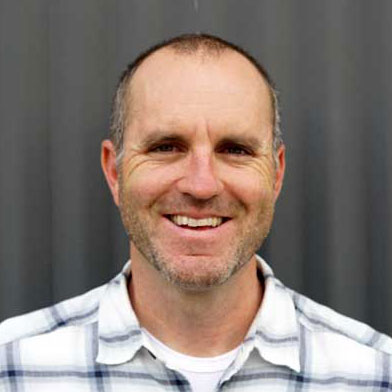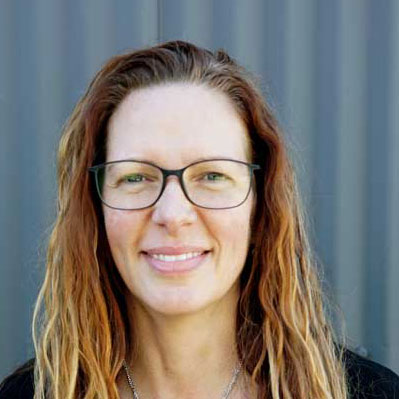The creative and influential minds over at 37signals have begun a new “profitable and proud” series to highlight small tech businesses that have $1M+ in revenues, didn’t take VC, and are profitable. It’s a brilliant idea and a great way to share success stories other than their own. Any small business, whether they are just starting up or are already profitable, would be wise to read through the online interview. The first interview with Campaign Monitor highlights a new way of doing business — 37signals, Campaign Monitor, our own Pelago, and many more companies are shunning the corporate stance that VC money and exit plans are the only way to start a business. We are opting instead for building and growing our companies around a work culture influenced more by lifestyle than output, and redefining what it means to be successful. The interview revealed several parallels to how we do things here at Pelago, parallels worth sharing with other small businesses looking to grow in the same direction.
In this post…
Do what you know and love
“The idea for selling our own software really came out of frustration more than anything else. … we built a simple app that let our clients manage their own newsletters. All our clients loved it and it created a nice new revenue stream for us.”
— Campaign Monitor
We have a similar story here at Pelago. We built Intervals, our web-based time, task and project management software, to help us and our clients manage projects. It started out as a simple app that allowed us to track time and our clients to submit tasks. Our clients loved using it and several suggested leveraging Intervals into an online service to benefit other design, development and creative agencies. We love doing web design and development, and we know the ins-and-outs of running a web design and development agency. It made complete sense for us to pursue Intervals because we already had an intimate understanding of our audience and online project management. Profits should not be your primary motive. Find something you love doing and start doing it. The passionate pursuit of knowledge has the most rewarding and beneficial impact on a small business.
Figure out what works best for your company culture
“Over the last six years we’ve gone from open plan, to all closed offices and then to a combination of both.”
— Campaign Monitor
When it comes to company culture, there is no right or wrong way to create a productive and enjoyable work environment. At Pelago we’ve gone from a completely open plan to a multi-room open plan. We found that an open plan created too much background noise, making it difficult to concentrate at times. Now we have one common room where everyone works and one quiet room where designers and developers can retreat to when they want to focus on a task. This works for us because we enjoy working in close proximity to one another, but it might not work for everyone. Obviously, there is more to consider besides office layout — schedules, roles and responsibilities all factor into the equation. The goal is to find out what works best for your team and create the ideal work environment.
Write your own definition of success
“While the financial success has been great, there are other aspects of the business that I would consider more of a success personally.… For me these things are much better indicators of a successful business than anything on a spreadsheet.”
— Campaign Monitor
When we started Pelago ten years ago one of the first things we did was describe our own personal definitions of success. We are a lifestyle company whose success depends on providing a comfortable work environment where our team can work on their terms, pursue fulfilling careers, and earn a rewarding salary. We’ve taken an “offpeak” approach at Pelago. The moment one of us is caught staring out the window wishing we were somewhere else we know we’ve got a problem. Defining success early on enables us to frame all of our business decisions in a greater context. It’s like a mission statement, but better. Your definition of success is going to be your own. Do some soul-searching to find out what you want from your small business and the seemingly difficult decisions won’t be difficult at all.
Be patient and persistent
“We’re quite conservative, and waited another six months before focusing on the product full-time.”
— Campaign Monitor
If you are talented enough to execute your creative ideas you are already ahead of most when it comes to growing a small business. The fact is that most people are lazy, too lazy to start a business, much less sustain one. Having simply started a business says you are qualified and committed to seeing it through. However, success does not happen overnight. Many businesses take several years to become profitable. When we started Pelago ten years ago we were solely a web design and development agency. The thought of building out a web-based project management app never occurred to us. We built and launched Intervals four years ago, and we continue to evolve it. This process of transitioning from a web design and development agency into a Software as a Service company has required more patience and persistence than we sometimes thought possible. We’ve persevered through two recessions and in the process obtained our business goals. We didn’t have any secret formula, we just had a lot of patience. Whatever goals you may set for your small business, be realistic in knowing that obtaining them is going to take longer than you plan. As the cliché goes, it’s about the journey, not the destination.
Transparency is the new black
“Because we were completely transparent, we had amazing support from our customers. Almost all of them got behind us with a positive message of some kind.”
— Campaign Monitor
People are done with today’s behemoth-sized corporations who hide behind walls of phone banks and “official” spokespersons. We want to know what’s in the food we are eating and why our cable television is on the blink. When a company is not straightforward with its customers it comes across as if they have something to hide. And in most cases, they probably do. Pelago has always sided with being transparent with our customers. And they’ve responded with nothing but positive affirmations and words of encouragement. We’ve made mistakes, and so will you. What makes us different is that we are proactive in alerting our customers and doing everything in our power to make it right. Don’t wait for your customers to discover your mistake. Don’t wait for them to complain. Be proactive with your customers and you will disarm even the most ornery, cantankerous ones.
Etc.
The crew at Campaign Monitor have created a successful business in a market plagued with spammers, spam filters and blacklists. They’ve made it easier for web designers and developers, like Pelago, to send emails out, seeing them through the muck and into the inboxes of our customers. And they did it simply by being honest and genuine in their business approach. They built a company with integrity in a field where integrity is hard to come by. Read the interview at signal vs. noise for more insight on how they did it.



